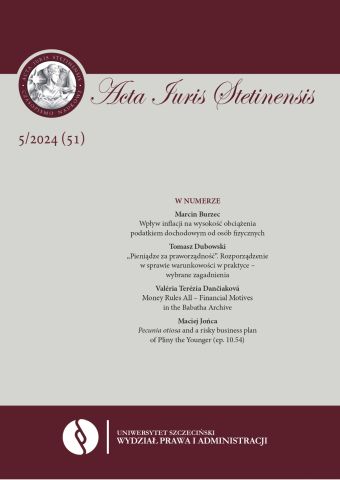Usury, law and emotions in William Shakespeare’s The Merchant of Venice and Krystyn Ostrowski’s adaptation Lichwiarz (1861)
Usury, law and emotions in William Shakespeare’s The Merchant of Venice and Krystyn Ostrowski’s adaptation Lichwiarz (1861)
Author(s): Katarzyna Jaworska-BiskupSubject(s): Politics / Political Sciences, Law, Constitution, Jurisprudence, History of Law, Civil Law, Public Law, Commercial Law, Roman law
Published by: Wydawnictwo Naukowe Uniwersytetu Szczecińskiego
Keywords: usury; Shakespeare; Krystyn Ostrowski; adaptation; law and literature
Summary/Abstract: The paper discusses the representation of usury in William Shakespeare’s The Merchant of Venice and the Polish adaptation Lichwiarz by Krystyn Ostrowski. This research aims to show how Shakespeare presented usury in his play and how Ostrowski modified it in 1861. As it is demonstrated, usury is a legal term that has always generated many feelings and provoked debates. This is reflected in the literature, Shakespeare’s play being the most illustrative example. Krystyn Ostrowski developed the theme of usury and emotions in his adaptation, introducing many additions and alterations all to criticise the Jewish community vehemently.
Journal: Acta Iuris Stetinensis
- Issue Year: 2024
- Issue No: 51 (5)
- Page Range: 189-208
- Page Count: 20
- Language: English

